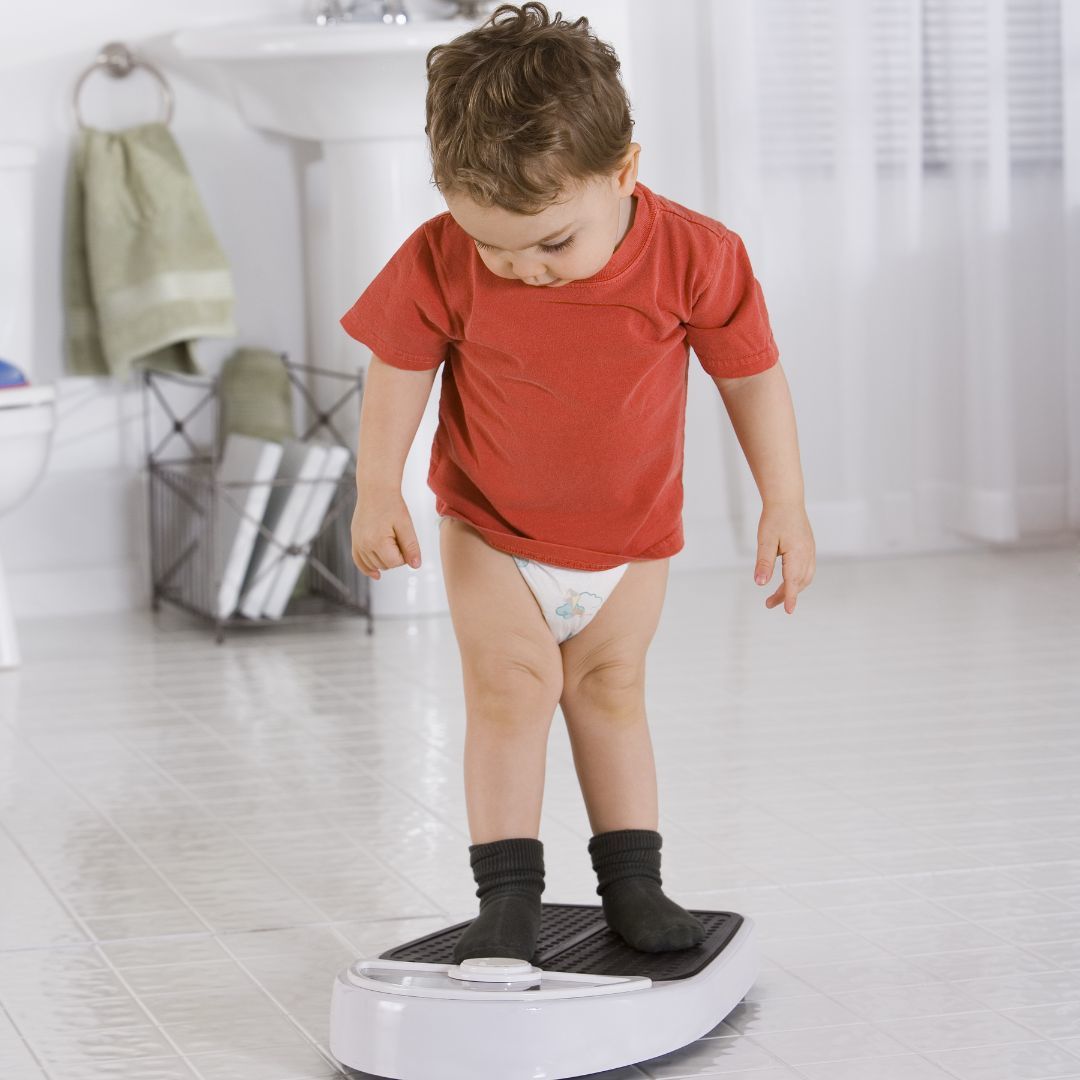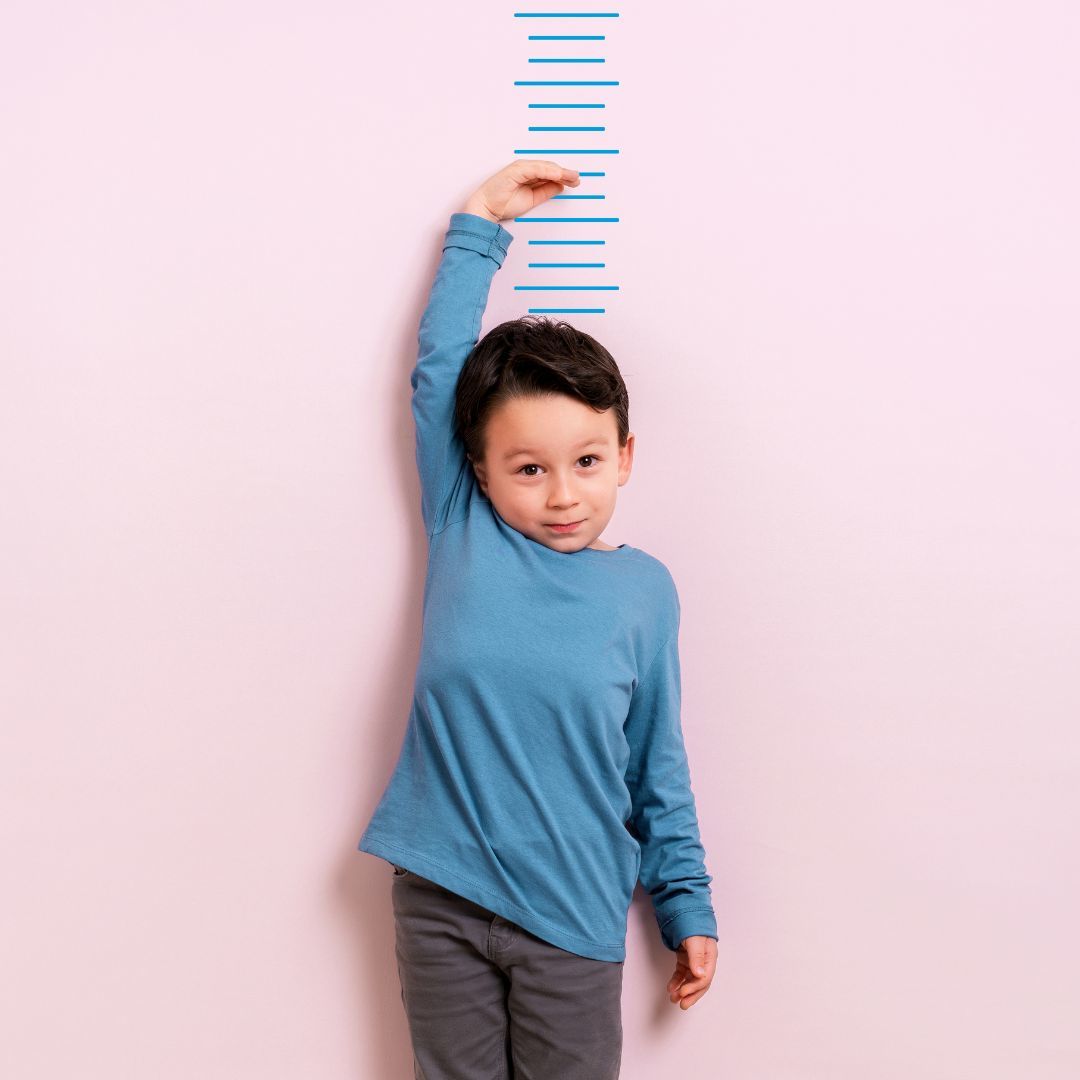

Researchers have warned that the National Childhood Measurement Programme (NCMP) may be doing more harm than good.
BMI is such a contentious topic to navigate, even amongst professionals! So, it's easy to imagine why it would be the subject of ferocious debate amongst concerned parents who worry themselves sick about their children every day, about every possible thing...
Since its inception, the National Childhood Measurement Programme has certainly been up for debate in the media and amongst mums and dads in the UK, with divisive opinions on either side. Childhood obesity is an ever-growing issue and it absolutely needs tackling before it leads to adulthood complications; but is the programme actually accurate? Should we be teaching children to scrutinise their body weight and shape at such a young and impressionable age?
The Royal Society For Public Health (RSPH) has previously denounced the scheme, sharing in 2015 revealed that only 20% of parents found the 'fat letter' (as many parents have coined it) in any way helpful.
Well, the verdict is finally out - the latest research is now suggesting that the NCMP is putting children at risk of developing eating disorders.

What is the National Childhood Measurement Programme?
The NCMP is an NHS-backed scheme that was established in 2006, although some areas in the UK ran similar schemes earlier. It was established in order to measure the height and weight of children when they start primary school, and again in year six - many children didn't take part due to Covid closures during their first year at school.
These measurements are used to formulate their BMI calculation - which has fallen under negative scrutiny by incredulous parents who are being sent letters claiming that their child is overweight or even obese, even after participating in athletics, and often with visible ribs and not an inch to pinch!
Why is the NCMP programme potentially flawed?
Researchers from the Queen Mary University of London have analysed the impact of the NCMP on children who had been branded overweight by the programme, the first real study of its kind.
They concluded that a large number of parents are concerned that the potential development of eating disorders, crash dieting and poor mental health in the future as a result of poor body image could be more dangerous and likely than their child actually growing up to become obese. Parents also expressed concern that their child was becoming too acutely aware of their body weight after their participation in the scheme, leading to their relationship with food becoming problematic.
The study was published in Journal of Critical Public Health, and reported that children involved expressed that they feel ashamed about their weight and the process of being weighed and measured, as well as being scared that they will be bullied by peers over their 'category'. Researchers also found that children who are being encouraged to lose weight, at such a tender young age, experienced a negative impact on their self-perception as well as being more likely to develop dysfunctional eating patterns that could lead to eating disorders.
Another question that both parents and professionals are asking is, is BMI itself flawed? Many are arguing that it could be, as it does not take account bone or muscle density, and many of our favourite athletes are classed as obese going by their BMI due to being muscular rather than carrying excess fat. So, in that respect, should we be applying such a tentative measurement of health to young and rapidly developing children who are still going through rapid growth spurts? While it is certainly a useful tool to gain an insight into the health of adults, we're sure it's fair to say that it is limited.

The study by Queen Mary University concluded;
"Further research is needed to understand whether parents’ concerns are being borne out in the long term, and to find ways to mitigate any negative effects of the programme. In some areas of England, efforts have been made to change the wording of the results letters issued to families, for example to avoid using stigmatising words like ‘overweight’ and ‘obese’. But these measures are locally driven and vary across the country.
The Queen Mary authors say policymakers need to thoroughly consider the questions that their findings raise: is the National Child Measurement Programme in its current form causing some children harm, how can this be mitigated, and how does it balance against the positive use of the data the programme produces? The NCMP generates valuable insights but it requires policy and actions - beyond those which can be taken by families acting alone - to halt and reverse the rising proportion of children who are an unhealthy weight.
Childhood obesity levels are high, increasing, and strongly linked to child poverty. There is little evidence that initiatives to change the behaviour of individual families are successful in reducing childhood obesity at a population level. Policy approaches to tackling obesity, including the soft drinks industry levy, and extending eligibility for free school meals as recommended in the National Food Strategy independent review, may be much more ethical and effective."
What our parenting community say...
We asked the parents in our online community what they thought of the scheme and, unsurprisingly, 100% of voters told us that they don't agree with the scheme. In fact, many respondents shared that they had opted out altogether, which you can do when the forms are sent by your child's school. One of the most common complaints was that many parents find the scheme 'interfering', as well as wildly inaccurate when their sporty and fit child with little body fat is being branded overweight!
All of the parents we discussed this with agreed that obesity is certainly a public health issue, and addressing health from a young age could save our children a lot of stress and ill health as adults; but when we look at how many visibly healthy children are being branded overweight or obese by the scheme, and data showing that childhood obesity has still gradually increased since 2016 rather than decreasing, clearly a fresh approach is needed.
Other articles...


.png)







